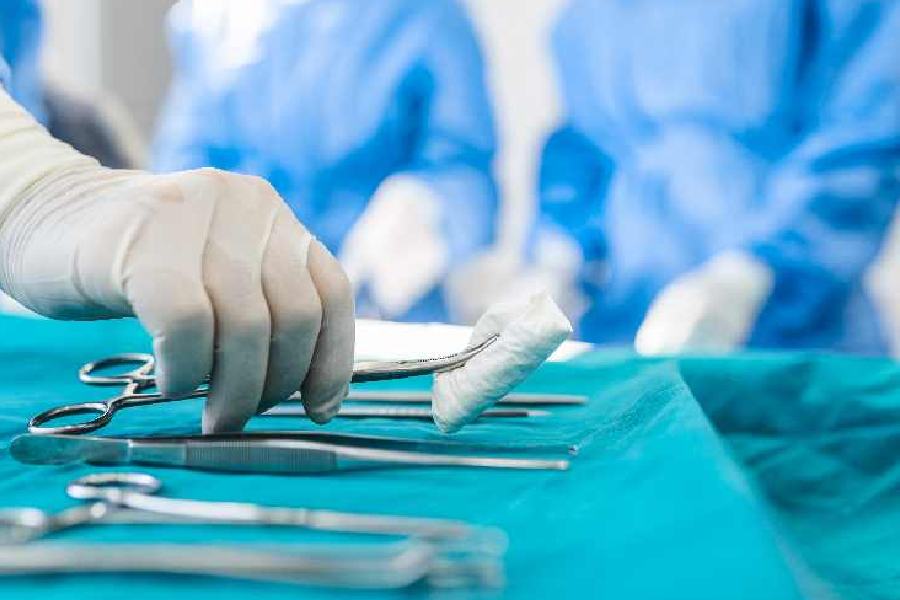Relations between the two countries may be on the edge but that did not come in the way of a one-year-old child from Bangladesh, in a life-threatening condition, getting treated in Calcutta and going back.
The parents of the boy, suffering from a skull deformity, said they preferred a doctor in Calcutta for the critical surgery their son needed.
The surgeon said doctors don’t see country, religion or politics when saving a life.
Ridwan Habib Ilham was diagnosed with craniosynostosis, a rare condition in which the skull bones fuse prematurely restricting brain growth and leading to an abnormal shape of the head.
“We saw the deformity a few months after his birth,” Ridwan’s mother Surayia Akhtar told Metro over the phone from their home in Benapol, Bangladesh, on Wednesday.
“We took him to a doctor in Jessore. After examinations there, the doctor said he would need a complicated surgery,” said Surayia. “They asked us to get it done in Jessore but we wanted to go to Calcutta for the surgery. We have faith in doctors in Calcutta.”
In June, Ridwan underwent surgery at Fortis Hospital in Anandapur.
“We had to stay for three months in Calcutta after the surgery. We returned to Bangladesh after Sheikh Hasina’s government had fallen and the country was in turmoil,” said the mother.
However, Ridwan became unwell after a few days and the family had to return to
Calcutta.
“That was around Durga Puja. We were staying at a hotel in Tagore Park (off EM Bypass). They requested us to leave and told us police could be visiting the place if we stayed,” said the mother. “So we went to a relative’s house.”
Recently, the family came to Calcutta again for a follow-up. This time they did not face any such problems.
G.R. Vijay Kumar, the director of neurosurgery at the Anandapur hospital, who performed the four-hour surgery with a team of doctors, said the earlier the surgery is done to fix craniosynostosis the better the outcome.
“The boy was seven months old when they came to us. Ideally, for craniosynostosis, the intervention should be done between three and six months,” said Vijay Kumar.
“His skull was growing more towards the forehead and back instead of upwards. So the skull looked like it was bulging. Also, he had deep-set eyes because the sockets were not growing,” said Vijay Kumar.
“We created artificial sutures to create a gap that would allow the brain to grow normally,” he said.
Orbitofrontal advancement, a surgical procedure to reshape and move the bones of the forehead and orbits, had to be done too, the doctor said.
“He has to be on a regular follow-up to ensure the brain, head and face grow normally. They should come once a year,” the surgeon said.
“The parents are apprehensive about whether they would be able to come to Calcutta regularly, given the present situation. But I assured them that even if they are unable to come, we can do the consultations online.”
According to the doctor, physical examinations are better because online consultations at times are disrupted by poor video quality. “But if they are unable to come, we have to manage,” he said.
This newspaper has reported that many patients from Bangladesh are unable
to come to Calcutta for treatment because of visa restrictions.
“We doctors have personal opinions about politics, religion and other issues. But when it comes to treating patients and saving lives, that becomes the most important thing and we should not differentiate,” said Vijay Kumar.











